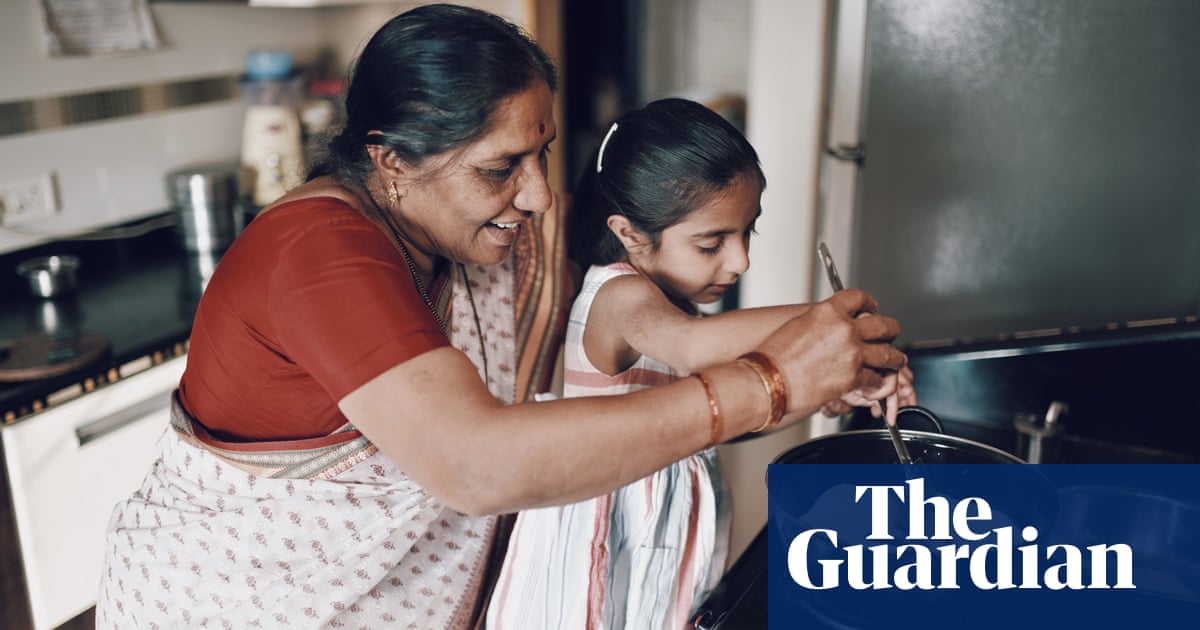
Ramadan coinciding with the COVID-19 pandemic this year gives parents more time to occupy their children
Children’s ability to absorb everything they see and hear from their surroundings can be used in parents’ favor
RIYADH: As Muslims spend more time during Ramadan making nutritious meals for the family, it is also a good opportunity to involve children in the kitchen as it stimulates their interest in cooking and eating healthily.
Ramadan coinciding with the COVID-19 pandemic this year gives parents more time to occupy their children, especially in food preparation.
Children’s ability to absorb everything they see and hear from their surroundings can be used in parents’ favor by instilling good habits.
Many parents consider the kitchen a good outlet for children to learn as they use all their senses — touching, feeling, tasting, smelling and seeing — making their experiences meaningful and memorable. Ramadan is the perfect time to teach young ones about food traditions, helping to nudge them down the path of healthy eating and creating happy family memories.
The first step in involving youngsters in the kitchen is creating a safe environment by removing hot liquids, sharp objects, heavy pots and glassware.
The next step is giving children the green light to explore and enjoy activities. This might lead to some chaos and mess but the learning experience will benefit them in the long run.
Sahar Mohammed, a 30-year-old mother of four, told Arab News that Ramadan is one of the months that brings the whole family closer, and she finds involving her children in the kitchen a joy. “It gives them a sense of responsibility and confidence in performing tasks.”
She said that each of her children is given a special task. “I have four children, and each is tasked with a job, depending on their age. My young children are tasked with preparing the dates and Zamzam water for iftar, while my eldest prepares the dinner table and even helps in the kitchen.”
Iman Alshethry, who works at Prince Sultan Military Medical City, told Arab News that her fondest childhood memories were of those with her mother in the kitchen. “Whenever she made dough, she would take the leftover to mix it with a little food color and give it to me to experiment on,” she said, adding that she will do the same with her child once she is older.
Mixing ingredients, rolling dough and using cookie cutters are all great ways to enhance a child’s fine motor strength and control. These are skills needed to develop academic skills such as writing, cutting and coloring.
Deema Al-Saja, a government employee, said that playing with dough is fun for children, including “making cookies, fudge . . . kids love cutting and rolling dough.”
Rocky road, mini-tarts and mini-donuts are some of the recipes Al-Saja enjoys making with her daughter.
Washing dishes is another task that can be delegated to children while in the kitchen, Al-Saja said. “Washing the dishes with kids can also be fun; they love to play with the soap.”
As most children like to imitate adults, cooking is an interesting and multi-sensory activity that helps children develop cognitive skills and abilities. Through cooking, children can learn to follow instructions, solve problems and make predictions and observations.
Another easy yet fun task children enjoy is adding toppings to pastries and pizzas, where they can learn to use healthy but appealing options, such as chopped vegetables, legumes, seeds and fruits.
“Our kids’ assistance is much needed. They can choose the toppings of a pizza or help to fold the samosas. They can decorate desserts with strawberries, blueberries and their favorite chocolate. They can also make fruit skewers, which could encourage them to eat more fruit,” Alshethry said.
Naila Al-Radadi, an Arabic teacher, said that her daughter enjoys making sweets and cupcakes. “My daughter has silicone molds in different colors. She loves to use them to make jelly cups or cup-cakes.”
Giving a child a wooden spatula and a mixing bowl may seem like a simple task, but will give the child a sense of achievement for being able to finish a job on his or her own without help.
“My daughter loves mixing cake. It is fun for young children and it is also safe,” Al-Radadi said.
Interacting with children and teaching them the names, colors and texture of items that they are using in the kitchen also broadens their vocabulary.
Involving children in the kitchen allows them to be more independent and responsible. The more they cook, the more their level of independence increases, which in turn boosts their levels of self-confidence and self-esteem.
Cooking also gives children a sense of pride and confidence, which in turn brings both parents and children closer together and creates a special bond. As the saying goes, Ramadan gathers all.











